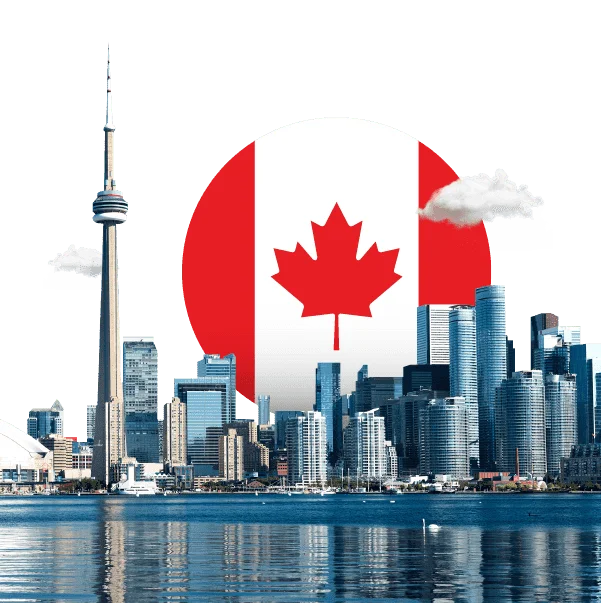Permanent Residency
- Next Move Immigration Consultancy Ltd
- Permanent Residency


00
Years of Experience
Introduction to Permanent Residency
Permanent residency (PR) is a person’s resident status in a country where they are not a citizen but have the right to reside permanently. For individuals seeking a better quality of life, stable opportunities, and a welcoming community, Canada offers one of the most comprehensive and beneficial PR programs in the world. With a permanent resident status, you can enjoy many of the same privileges as Canadian citizens do, including the right to work, study, and access to public healthcare and social services. In this article, we’ll provide a detailed overview of permanent residency in Canada, eligibility criteria, application process, and your rights and responsibilities as a permanent resident.
Have Question?
Free (306) 350-7000
What is Permanent Residency in Canada?
Canada is renowned for its friendly immigration policies, which are designed to attract skilled individuals, entrepreneurs, students, and families from around the globe. Permanent residency status allows you to live, work, and settle in Canada permanently, without being a Canadian citizen. This status grants you the security and opportunity to make Canada your home while enjoying nearly all the rights that citizens have.
The Permanent Resident Card (PR Card)
Once you have obtained permanent resident status, you are issued a Permanent Resident Card (PR Card), which is your official proof of status in Canada. It is important to have this card with you when traveling outside of Canada and returning, as it is the primary identification document that confirms you are a legal permanent resident. Without a valid PR card, you may be denied entry when returning to Canada.
If you are already outside of Canada and your PR card has expired or been lost, you must apply for a Permanent Resident Travel Document (PRTD) at a Canadian visa office to re-enter Canada.
Key Benefits of Being a Permanent Resident
- Live and Work anywhere in Canada: As a permanent resident, you can live, work, and study in any province or territory across Canada. Whether you wish to settle in vibrant cities like Toronto, Vancouver, and Calgary or more serene and nature-rich regions, the choice is yours.
- Access to Public Services: Permanent residents have access to essential public services, including healthcare and education. Canada’s publicly funded healthcare system is renowned for providing quality care to all its residents.
- Pathway to Citizenship: One of the significant advantages of being a permanent resident is that you can eventually apply for Canadian citizenship if you meet the requirements. Permanent residents who have lived in Canada for at least three years in a five-year period are eligible to apply for citizenship.
- Protection Under Canadian Law: As a permanent resident, you are protected under Canadian law and enjoy the same rights and freedoms as Canadian citizens, including access to legal support and a fair justice system.
Who is Not Considered a Permanent Resident?
It is crucial to understand that a person in Canada temporarily, such as an international student or a foreign worker, is not a permanent resident. Temporary residents must have a valid study or work permit and are required to adhere to the conditions of that permit, including leaving Canada once it expires unless they apply for an extension or a different status.
Permanent residency, on the other hand, allows individuals to remain in Canada indefinitely, provided they meet the residency obligations set by the government.
Residency Requirements for Permanent Residents
To maintain your permanent resident status, you must meet specific residency requirements. A permanent resident must be physically present in Canada for at least 730 days (two years) within the last five years. These days do not have to be consecutive, and they can be accumulated in any manner within the five-year period. Failing to meet this requirement could result in the loss of permanent resident status.
The 730-day requirement is intended to ensure that individuals who hold PR status have a genuine connection and commitment to Canada. Time spent outside of Canada may still count toward your residency requirement in certain situations, such as accompanying a Canadian citizen spouse or working abroad for a Canadian business.
Applying for Permanent Residency in Canada
There are several pathways to apply for permanent residency in Canada. Each program has its own eligibility requirements, and it is essential to understand which program best suits your profile, aspirations, and goals. The most popular programs include:
- Express Entry: This is an online system used by the Canadian government to manage applications for skilled workers. It includes three economic immigration programs—the Federal Skilled Worker Program, the Federal Skilled Trades Program, and the Canadian Experience Class. Candidates are selected based on a points-based system known as the Comprehensive Ranking System (CRS), which takes into account factors like age, education, work experience, and English/French language proficiency.
- Provincial Nominee Program (PNP): The PNP allows individual provinces and territories in Canada to nominate individuals who wish to settle in a specific region. Each province has its own unique criteria and streams, focusing on attracting candidates who have the skills, education, and work experience needed to contribute to their local economy.
- Family Sponsorship: Canadian citizens and permanent residents can sponsor certain family members, such as spouses, common-law partners, parents, and dependent children, to come to Canada and obtain permanent residency.
- Start-Up Visa Program: This program targets entrepreneurs with innovative business ideas and the potential to create jobs for Canadians. Applicants must have the support of a designated organization to be eligible.
- Quebec-Selected Skilled Workers: Quebec has its own immigration program with different criteria from the federal government. Applicants who wish to settle in Quebec must apply through this program.
- Humanitarian and Compassionate Considerations: Individuals who do not meet the requirements of any immigration program but have compelling humanitarian reasons for wanting to remain in Canada may be eligible to apply on humanitarian and compassionate grounds.
Rights and Responsibilities of Permanent Residents
As a permanent resident of Canada, you enjoy several rights, but you also have certain responsibilities. It is essential to be aware of these to ensure that you maintain your status and contribute positively to Canadian society.
Rights of Permanent Residents:
- Live, Work, and Study: You can live, work, and study in any province or territory in Canada.
- Access to Social Benefits: You have access to Canada’s social services, including healthcare, education, and social security.
- Protection under Law: You have the right to be protected under Canadian law and have the same legal rights as Canadian citizens.
Responsibilities of Permanent Residents:
- Obey Canadian Law: Permanent residents are required to obey all federal, provincial, and municipal laws in Canada.
- Meet Residency obligations: As mentioned earlier, you must reside in Canada for at least 730 days in the last five years to retain your PR status.
- Pay Taxes: You must pay taxes and file tax returns as required by Canadian law, regardless of whether you earned income in Canada or abroad.
Losing Permanent Resident Status
Permanent resident status does not expire, but it can be lost if you fail to meet your obligations. You can lose your PR status if:
- You do not meet the residency requirements.
- You are found guilty of serious criminal offenses.
- You voluntarily renounce your status.
It’s important to remember that even if your PR card expires, you are still a permanent resident. However, renewing your PR card is crucial to maintain proof of your status and to be able to travel outside of Canada.
Conclusion
Permanent residency in Canada provides you with a wealth of opportunities and a chance to build a prosperous life for yourself and your family. It’s a privilege that comes with rights, responsibilities, and a pathway toward becoming a full-fledged Canadian citizen. At Next Move Immigration Consultancy Ltd, we are here to guide you through every step of your journey toward obtaining and maintaining permanent residency in Canada. Our experienced consultants offer personalized advice and support to ensure that your application process is smooth and successful.
If you’re ready to make Canada your home, contact us today to begin your journey toward a brighter future.
Select
Visa TypeFill
Online FormSubmit
ApplicationVisa
ProcessingVisa
Approved
